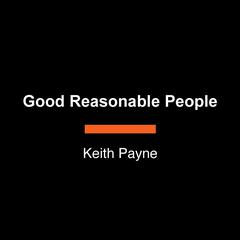 Play Audiobook Sample
Play Audiobook Sample
The Broken Ladder: How Inequality Affects the Way We Think, Live, and Die Audiobook
 Play Audiobook Sample
Play Audiobook Sample
Quick Stats About this Audiobook
Total Audiobook Chapters:
Longest Chapter Length:
Shortest Chapter Length:
Average Chapter Length:
Audiobooks by this Author:
Publisher Description
A timely examination by a leading scientist of the physical, psychological, and moral effects of inequality
Today’s inequality is on a scale that none of us has seen in our lifetimes, yet this disparity between rich and poor has ramifications that extend far beyond mere financial means. In The Broken Ladder psychologist Keith Payne examines how inequality divides us not just economically, but also has profound consequences for how we think, how our cardiovascular systems respond to stress, how our immune systems function, and how we view moral ideas such as justice and fairness.
Experiments in psychology, neuroscience, and behavioral economics have not only revealed important new insights on how inequality changes people in predictable ways, but have also provided a corrective to our flawed way of viewing poverty as the result of individual character failings. Among modern developed societies, economic inequality is not primarily about money, but rather about relative status: where we stand in relation to other people. Regardless of their average income, countries or states with greater levels of income inequality have much higher rates of all the social problems we associate with poverty, including lower average life expectancies, serious health issues, mental illness, and crime.
The Broken Ladder explores such issues as why women in poor societies often have more children, and have them younger; why there is little trust among the working class that investing for the future will pay off; why people’s perception of their relative social status affects their political beliefs, and why growing inequality leads to greater political divisions; how poverty raises stress levels in the same way as a physical threat; inequality in the workplace and how it affects performance; why unequal societies become more religious; and finally offers measures people can take to lessen the harm done by inequality in their own lives and the lives of their children.
Download and start listening now!
“Smartly blending personal observations with recent research in psychology and neuroscience…[Payne] details how our perceived relative position in the scheme of things plays a ‘critical role’ in shaping our biases, habits, and ideas.”
— Kirkus Reviews
Quotes
-
“Keith Payne has written an eye-opening book with profound resonance for the state of our world.”
— Susan Cain, New York Times bestselling author -
“This timely and accessible volume unpacks a complex problem, and points toward solutions.”
— Library Journal -
“The Broken Ladder’s examination of the consequences of inequality—of what it is like to be poor and to feel poor—is as profound as it is revelatory.”
— Sonja Lyubomirsky , PhD, author of The How of Happiness
The Broken Ladder Listener Reviews
Be the first to write a review about this audiobook!
About Keith Payne
Keith Payne is a professor of psychology at the University of North Carolina at Chapel Hill. As an international leader in the psychology of inequality and discrimination, he has published more than seventy articles and book chapters. His work has been covered in popular media from NPR to the Huffington Post to the Atlantic. In addition to his academic publications, he has written for general audiences in Scientific American and Psychology Today. He received his PhD from Washington University in St. Louis.
About James Anderson Foster
James Anderson Foster, an Earphones Award–winning narrator, has narrated audiobooks for a variety of publishers, across nearly all genres, both fiction and nonfiction. In 2015, he was a finalist in three categories for the Society of Voice Arts and Sciences Voice Arts Awards—mystery, science fiction, and fantasy.
























